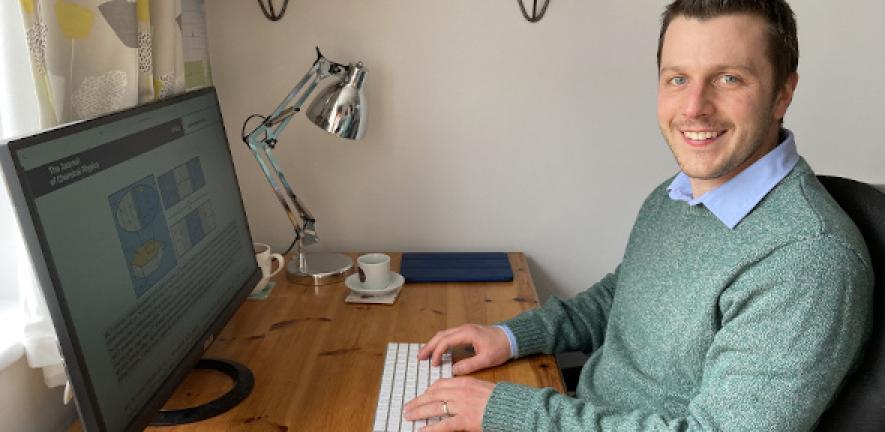
“I am delighted to receive this Fellowship, which gives me the opportunity to establish a research group by recruiting students and postdoctoral researchers, and expand my current research,” says Cox, who previously held an 1851 research fellowship, and is based in the Department and Churchill College.
Cox’s research centres on understanding and controlling the structure of materials at the atomic scale. He says: “I am working on solving a very basic science question, which is ‘In a given solution environment, what are the stable surface structures of a material?’ Not only is this a question of fundamental scientific interest, but it is also relevant to the discovery of new materials relevant to pharmaceuticals, energy and catalysis.”
As a computational and theoretical chemist, Cox’s goal is to develop molecular simulations to determine and control these structures. “We have many tools at our disposal to characterise and manipulate atomic structure under ‘clean’ conditions, like ultra-high vacuum,” he says. But clean conditions are the exception, not the rule. Instead, Cox wants to shed light on how the structure and dynamics of materials are actually affected by the surrounding environment. “If we really want to tackle big questions like ‘how do crystals form in the real world?’ then we need to develop a comparable set of tools for complex environments.”
To do this, Cox has been investigating how charged surfaces react in an electrolyte solution, using a simulation methodology known as the finite field approach. “This is just a shorthand way of saying ‘an approach that lets us impose electrostatic fields in our simulations in a rigorous fashion,’” he explains. A major achievement of his work has been to show how this approach was more generally applicable than first thought, which earned Cox an award for Best Paper by an Emerging Investigator from The Journal of Chemical Physics.
Cox now aims to develop this approach further. “I’ve used this to demonstrate how ions from solution can stabilize certain charged surfaces. But the much more challenging question that I now want to address is do they?”
Stephen also plans to tackle head-on the root of the issue that makes simulating these complex interfaces such a challenge. “My goal is to develop a theoretical basis which will give us insight into the so-called ‘short-sightedness’ of modern machine-learning potentials. This could lead to a step-change in the way this issue is approached, which could have a real impact on materials discovery.”

